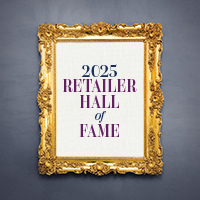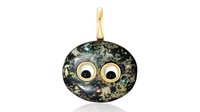Watch: What to Know About Jewelry Appraisals
Plus, appraisal expert Mark Cartwright answers the audience questions we missed during the webinar.
In the latest episode of “My Next Question,” experts Gail Brett Levine and Mark T. Cartwright joined Associate Editor Lenore Fedow to shed some light on the world of appraisals.
From how often jewelry should be appraised to the average cost of an appraisal, Levine and Cartwright shared their decades of expertise.
Watch the full session above and join us again for “My Next Question” this coming Tuesday, July 6 at 2 p.m. EDT.
Senior Editor Brecken Branstrator will sit down with Jewelers of America President David Bonaparte to talk about its upcoming National Convention, Gem Awards, and everything else on the trade organization’s schedule this summer. Register at NationalJeweler.com/webinars.
For more on appraisals, Cartwright shared answers to questions we couldn't get to during this week's webinar below.
Q: What are your tips for starting your own appraisal company?
Mark Cartwright: It's like starting any other small business. You need to create an honest, workable business plan that identifies your market, your competition, your finances going forward, etc.
Be prepared to not take home a significant amount of money, initially, since it will take more time than you probably think to develop relationships and market share. But, if it's what you love, it's all worth it. It can get expensive though! And there's help out there with SCORE, the Small Business Administration, etc. to help people starting businesses develop a plan and follow through with it.
Q: Do you have any advice for valuing items for fair market for resale?
MC: First, fair market value may not be the appropriate type and definition of value for that intended use. You need to understand what market level the client intends to try to sell the items into, and you need to recognize and understand the value characteristics, positive and negative, of the items to be able to understand how the client's intended market will see the pieces. Outdated, used jewelry often has a very limited market appeal.
When you do the research, you should explore enough types of markets to find out where items like that most commonly sell. The main difference being that you need to find out from the client how they intend to sell and where they believe they're going to find an audience. After you've done the research, you may have other advice for the client.
Secondly, the critical distinction to make is whether an actual appraisal will serve their interest or whether simply finding cash offers from within the jewelry trade is more appropriate for the client's goals and their items.
I've found that, the majority of the time, the client has no idea how to answer any of those questions, but, as an appraiser with familiarity with the markets in which used jewelry is sold, you may be able to suggest that outdated jewelry in fair condition is most appropriately valued on the basis of the gold and stones at liquidation market levels.
Nobody likes to hear that their treasured heirloom is outdated and worth the break-out value of materials, but, sometimes that's the reality and they come to us as professional valuers for honest answers.
Q: What is a recommended pricing structure for appraisals on items not purchased from your store?
MC: I suspect that only you can answer that question. It's about time and return on your investment in that time.
Typically, jewelry stores don't actually provide "appraisals" within the definition of the term in USPAP. The valuation service most stores provide is really more of an "estimate to replace in our store" rather than an unbiased, independent opinion based on market analysis that includes their store as just one datapoint in the information needed to provide an opinion of value.
If you're going to pull your most high-value employee off the sales floor to provide that service, I'd probably consider not just their direct costs (salary, etc.) but the potential loss of other income by not having them selling inventory during the time they're doing the valuation. Only you can do that math.
Q: Why don’t appraisers have government regulation/certification or licensing as they do for hairdressers?
MC: That's a hotly debated question and has been for years. There are a lot of factors [to consider], such as lobbying against it by jewelry industry groups who don't want to regulate any part of their business. It probably also has to do with the government expense to set up and maintain the infrastructure necessary.
It may also have to do with a general distaste by many people for any government regulation of free enterprise, and part of it probably has to do with the minimal, in the grand scheme of things, financial risk to consumers and the belief that the legal system will and can weed out the bad appraisers. And hey, a bad appraisal is not a good thing, but a bad haircut? That can be devastating!
Q: If the consumer wants to sell the pieces to other individuals, which do you recommend: insurance value appraisal or estate appraisal?
MC: Neither. How pieces are valued for resale depends on the specific pieces, how the client intends to sell, and how quickly they hope to sell.
Most of the time I find that "marketable cash value" based on actual cash offers from reputable dealers who are knowledgeable in the type of pieces and have the money to pay for them (not consignment) will give the client the most realistic information about how much their used jewelry is "worth" in the resale market.
If they intend to sell the pieces themselves to an individual, marketable cash value provides them with a realistic view of the least amount they can sell for. An alternative is "market value for resale" and would usually be based on research of either sold pieces at auction (recently completed sales) or possibly offers to sell by used jewelry retailers that typically carry that kind of jewelry.
Don't get stuck with the idea that the appraisal or appraisal report has to fit into a neat appraisal-type box. We're there to answer the client's value questions and sometimes that doesn't fit into a nice, tidy little pre-packaged box with a convenient label.
Q: What is the future of the appraisal industry?
MC: I think there will be some major changes coming for the jewelry appraisal industry within the next three to five years as far as education is concerned.
I don't think there will be any significant push for regulation from a federal or state standpoint, but I suspect that as insurers and other stakeholders begin to recognize the impact on their financial bottom lines caused by bad jewelry and personal property appraisals that they will begin expecting more education and compliance with recognized standards like USPAP.
If that happens, other industry players may enter the appraisal education scene. We already see some insurers trying to partner with appraisal software providers to try to make the process easier for the insurer, not better for the appraisal client, however.
My experience with most of the pre-packaged appraisal software offered through insurers has indicated that there are significant limitations and potentially serious legal and ethical issues that remain to be resolved, but they're new to the game and things might get better eventually.
The Latest

Chris Blakeslee has experience at Athleta and Alo Yoga. Kendra Scott will remain on board as executive chair and chief visionary officer.

The credit card companies’ surveys examined where consumers shopped, what they bought, and what they valued this holiday season.

Kimberly Miller has been promoted to the role.
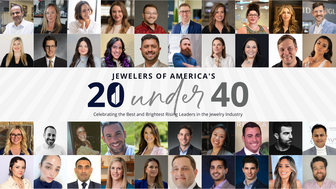
How Jewelers of America’s 20 Under 40 are leading to ensure a brighter future for the jewelry industry.
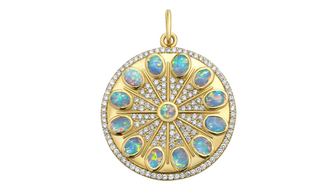
The “Serenity” charm set with 13 opals is a modern amulet offering protection, guidance, and intention, the brand said.


“Bridgerton” actresses Hannah Dodd and Claudia Jessie star in the brand’s “Rules to Love By” campaign.
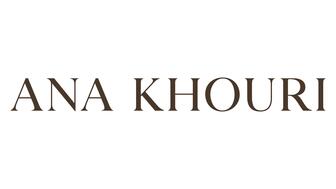
Founded by jeweler and sculptor Ana Khouri, the brand is “expanding the boundaries of what high jewelry can be.”
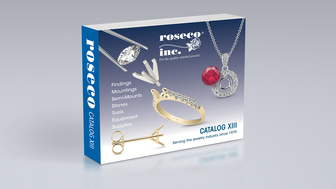
Roseco’s 704-page catalog showcases new lab-grown diamonds, findings, tools & more—available in print or interactive digital editions.
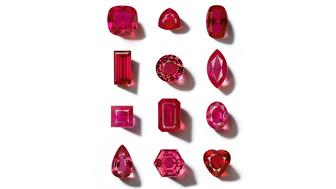
The jewelry manufacturer and supplier is going with a fiery shade it says symbolizes power and transformation.

The singer-songwriter will make her debut as the French luxury brand’s new ambassador in a campaign for its “Coco Crush” jewelry line.

The nonprofit’s new president and CEO, Annie Doresca, also began her role this month.

As the shopping mall model evolves and online retail grows, Smith shares his predictions for the future of physical stores.
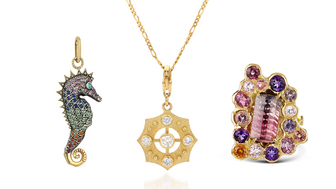
The trade show is slated for Jan. 31-Feb. 2 at The Lighthouse in New York City's Chelsea neighborhood.
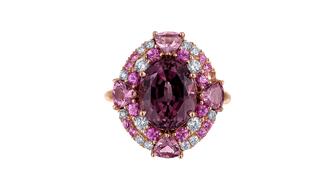
January’s birthstone comes in a rainbow of colors, from the traditional red to orange, purple, and green.

The annual report highlights how it supported communities in areas where natural diamonds are mined, crafted, and sold.

Footage of a fight breaking out in the NYC Diamond District was viewed millions of times on Instagram and Facebook.
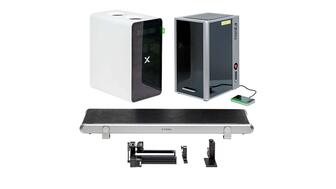
The supplier has a curated list of must-have tools for jewelers doing in-house custom work this year.

The Signet Jewelers-owned store, which turned 100 last year, calls its new concept stores “The Edit.”

Linda Coutu is rejoining the precious metals provider as its director of sales.

The governing board welcomed two new members, Claire Scragg and Susan Eisen.

Sparkle with festive diamond jewelry as we celebrate the beginning of 2026.

The master jeweler, Olympian, former senator, and Korean War veteran founded the brand Nighthorse Jewelry.
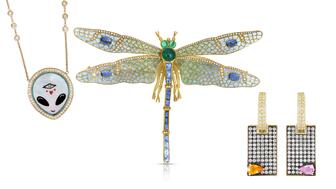
In its annual report, Pinterest noted an increase in searches for brooches, heirloom jewelry, and ‘80s luxury.

Executive Chairman Richard Baker will take over the role as rumors swirl that a bankruptcy filing is imminent for the troubled retailer.

Mohr had just retired in June after more than two decades as Couture’s retailer liaison.

Shekhar Shah of Real Gems Inc. will serve as president of the Indian Diamond & Colorstone Association in 2026.
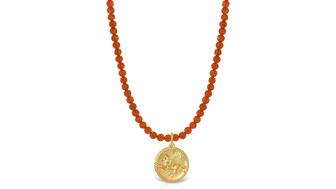
This year’s good luck charm features the mythical horse Pegasus, and is our first Piece of the Week of the new year.

